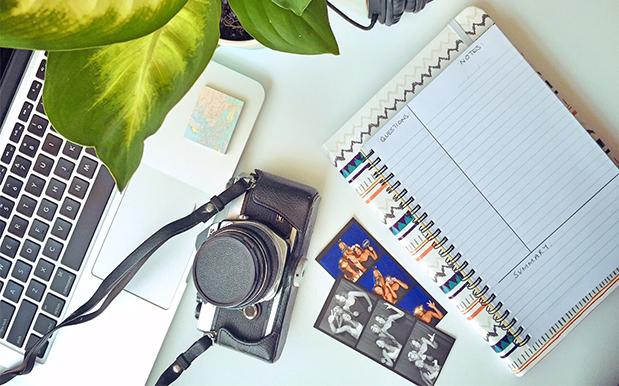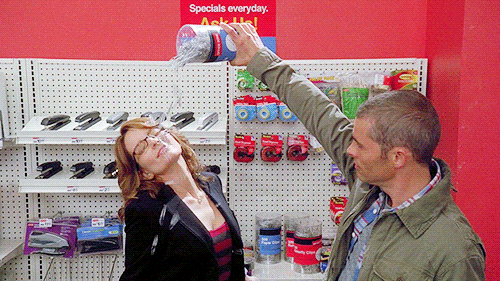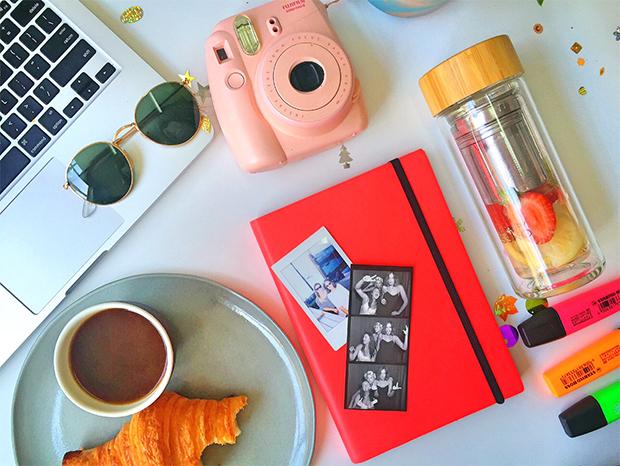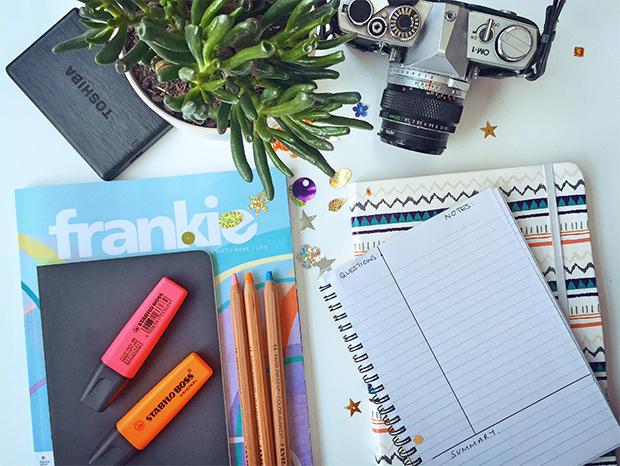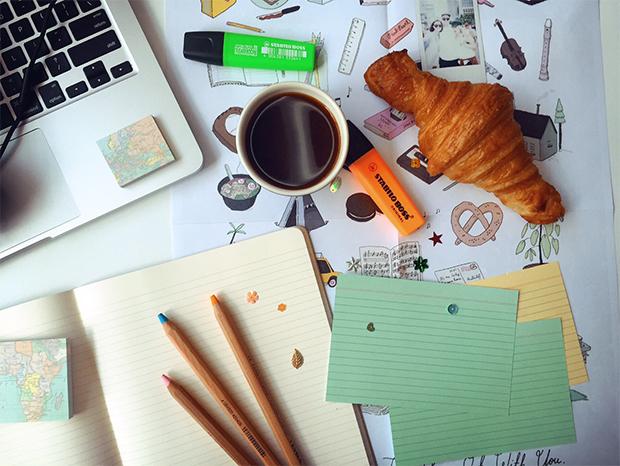Pfft, don’t listen to your parents and friends – your obsession with stationery is both natural and normal. PEDESTRIAN.TV has partnered with Officeworks to showcase their latest/greatest wares ’cause odds are, anyone’s obsession with office supplies boils down to what they represent: fresh note pads, pens, tech and all of the other essentials mark a new beginning – a fresh slate to the academic year. If you’re stepping onto campus for the first time, or are currently chipping away at your diploma/certificate/degree, then Officeworks will hook you up with everything you need to maximise your study potential. Head to Officeworks’ website HERE to suss ‘n sort all your stationery needs.
If you don’t love stationery, then, well, we don’t want to know you.
Why? Because stationery is life, stationery is bae.
The power of a new pen, a fresh notebook or an untarnished diary is second to none. Breaking office supplies from the shackles of its packaging can fill you with an all-consuming sense of organisational enlightenment, taking you to a euphoric realm of complete ease.
Your friends and family worry about you sometimes, but in your opinion there’s nothing wrong with staying in on a Friday night to create an Excel breakdown of this semester’s assignments rather than hitting some filthy club (PREACHHHHHHHHHHHH).
Although you may find this hard to believe, we’ve compiled a few techniques that’ll take your already perfect study techniques (facilitated by your tremendous range of stationery, of course) to new heights. Buckle in kids and start running a cold shower, this’ll be one ride that’s sure to get you a bit hot under the collar.
STUDY SPACE 101
Your study space essentials and why they matter.
PROPER LIGHTING
Reading in crap lighting ain’t ideal and neither is squinting from too much light. Make sure your study space is well-lit (either with a
desk lamp or natural lighting) so it doesn’t become bothersome and detract from your ability to concentrate.
INDOOR PLANTS
Hopefully you would’ve been given the basic run down of what plants do by now – y’know, the whole absorbing carbon dioxide and releasing oxygen thang. Having indoor plants will keep the air you’re breathing nice ‘n fresh.
WATER
You need water chiefly because, without it, you’ll die. If that isn’t enough motivation to stay hydrated then please, take a second to ponder/evaluate everything you know to be true.
UNCLUTTERED WORKSPACE
Neuroscientists at
Princeton University did a
lil’ study about clutter. The findings concluded that having random crap littered around you competes for your attention, hindering your ability to focus/perform as well as increasing your stress levels. Keep your pens + pencils tucked away in
X Mesh Flat Pencil Case.
PUT YO’ EQUIPMENT TO WERK
Scientifically tried ‘n tested techniques that’ll revolutionise your notebook game.
A5 NOTEBOOK
There are two camps of people: those who use A4 notebooks, and those who use A5 notebooks. We here in the P.TV office are huge fans of the latter because they’re easy to carry around, and when you’re writing on those tiny pull-out desks in lecture halls, you won’t awkwardly elbow the person next to you.
THE CORNELL NOTES SYSTEM
Walter Pauk, an education professor at Cornell University, devised a pretty nifty way of note-taking back in the 1950s called the Cornell Notes system. Recognising its effectiveness (and seeing an opportunity to make a lil’ bit of $), Pauk presented the system in his best-selling book, How to Study in College – the contents of which are pretty self-explanatory.
The Cornell Notes system provides y’all a method for condensing and organising your notes. You divide a page into two columns, the lefthand side takes up one third of the page, and the righthand side takes up two thirds. The left side is dedicated to questions and key words (example for biology: What is biology? What does a biologist do?), the right is used to answer those questions or define the key words (IMPORTANT: KEEP ANSWERS/DEFINITIONS SHORT + SUPER CONCISE).
If you’re planning on using the Cornell Notes system for lectures, then leave a few lines at the bottom to summarise the ~learnings of the day~.
A study published in 2007 by
Wichita State University found an added benefit to study of material that later needed to be synthesised and applied in context – which is obvi what you want from your notes.
LEITNER SYSTEM
Back in the ‘70s, a dude named Sebastian Leitner created a system to memorise a heap of crap using flashcards. The system employs the principle of spaced repetition: a learning technique that makes you review material in increasing intervals of time.
As mentioned, Leitner threw flashcards into the mix as a means to retain bulk info. On one side of the card you write a question (example: who’s Kris Jenner‘s favourite child), and the answer on the other side (example: Kim). You then sort a box into three sections (or however many is right for ya) and place the concepts you know well in the back section, the things you know moderately in the middle, and the things that are confusing AF in the first section.
The first section you review daily. If you get the question right, you promote it to the next section. The second section you review every two or three days – if you get it right, you promote it to the next section. The last section you look at once a week (it’s stuff you’ve got down-pat) and leave it where it is if you answer the question right.
If you get anything wrong in any of the sections, however, you move it back to the first section. Frustrating? Ummm, yeah, exceedingly. Effective? YEP.
If you’re having a hard time wrapping your head around the the system than thank your lucky stars for the internet’s existence, which has provided the method in an easy to consume GIF form:
THANKS INTERNET, YOU’RE THE BEST!!!!!!!!!!!!!!!!!!!!!!!!!!!!
THE HELPING HAND OF TECHNOLOGY
Getting more out of the items you’re already using 24/7.
COMPUTER
It’s
2016 people. You’re really kidding yourself if you don’t own a computer. A laptop is the best option for students as you’ll be able to take notes in lectures/tutorials. If you choose to go down the lappy path, the obvious option is the
MacBook Pro 13-inch –
Apple sure know how to make a sexy bit of tech.
HARD DRIVE
Don’t tempt fate, people. If you’re working on a 15,000 word dissertation then BACK THAT THE HELL UP. CONSTANTLY.
HEADPHONES
Traditionally, listening to music while studying has been heralded as an aid to the process (in research like the
Mozart Effect). More
recent studies have found that it may have an adverse effect on yo’ study sesh. Seeing as there’s a bit of a clash, we’ll leave you to decide what’ll work best. With that being said,
Mind The Science Gap reports there’s,
“numerous benefits to listening to music before performing a task – it improves attention, memory, and even mental math ability. It has also been found to alleviate depression and anxiety”. So kids, crank your fave beats prior to your study/an exam for better results. Use the
Beats Solo2 Headphones to really ~feel the music~.
Gird your loins for this upcoming semester by visiting Officeworks’ website
HERE.
